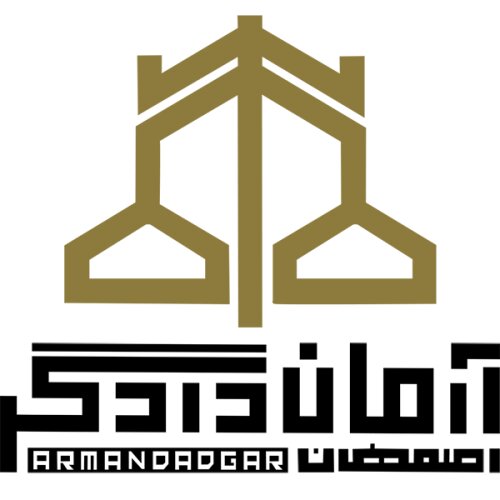Best Lawsuits & Disputes Lawyers in Isfahan
Share your needs with us, get contacted by law firms.
Free. Takes 2 min.
List of the best lawyers in Isfahan, Iran
About Lawsuits & Disputes Law in Isfahan, Iran
Lawsuits and disputes in Isfahan, Iran, are governed by Iranian civil, commercial, and procedural laws, which are based on Islamic principles and the Iranian Civil Code. Isfahan, as one of Iran’s major cities, is home to various courts and legal institutions where individuals and businesses resolve legal disagreements. Disputes can include civil matters like contracts, property, and family issues, as well as business disagreements and claims arising from accidents or wrongful conduct. Understanding the local legal framework is essential for navigating these matters effectively.
Why You May Need a Lawyer
There are numerous circumstances in which individuals or entities may require legal assistance in Isfahan. Common situations include:
- Disagreements over contracts, property boundaries, or business transactions
- Family law issues such as divorce, child custody, or inheritance disputes
- Employment disagreements or wrongful termination claims
- Personal injury claims resulting from accidents or negligence
- Debt recovery or enforcement of financial obligations
- Defamation, fraud, or ownership-related disputes
- Appeals against court or administrative decisions
Lawyers help clients understand their rights, represent them in negotiations, and advocate for them in court. They can draft legal documents, submit claims, gather evidence, and ensure compliance with procedural rules, improving the likelihood of a favorable outcome.
Local Laws Overview
Laws governing lawsuits and disputes in Isfahan follow national standards, with specific processes outlined in the Iranian Civil Code, Commercial Code, and Civil Procedure Code. Key aspects include:
- Court Structure: Disputes are typically heard in the General Courts (Dadgostari), specialized courts for family or commercial matters, and appellate courts for reviews.
- Filing a Lawsuit: Plaintiffs must submit written complaints with supporting documents. Persian is the official language of proceedings.
- Alternative Dispute Resolution (ADR): Mediation and reconciliation councils exist for certain civil disputes before resorting to litigation.
- Representation: Legal representation is permitted and often recommended, especially in complex cases or appeals.
- Enforcement of Judgments: After a decision, the enforcement department (Edareh Ejra-ye Ahkam) ensures judgments are carried out.
- Limitation Periods: Different types of claims have statutory deadlines for filing (often 1 to 10 years), and missing these periods may bar a lawsuit.
It is crucial to understand the specific requirements, deadlines, and documentation needed for a lawsuit, as well as any local regulations that may impact the case.
Frequently Asked Questions
What types of disputes can be brought before courts in Isfahan?
Courts in Isfahan handle a wide range of civil, family, commercial, and administrative disputes. These include contract disagreements, property cases, employment issues, family law matters, debt recovery, and tort claims.
Do I need a lawyer for a lawsuit in Isfahan?
While some minor claims may be handled without a lawyer, legal representation is strongly recommended for most disputes. Lawyers provide essential guidance on the process, prepare necessary documents, and protect your interests.
How can I file a lawsuit in Isfahan?
You must submit a written legal complaint to the relevant courthouse, pay the filing fees, and provide necessary evidence or documents. The process is conducted in Persian and must comply with Iranian procedural requirements.
What is mediation or reconciliation council?
Many civil disputes may first go through mediation or reconciliation councils, which are local bodies established to resolve matters amicably without court intervention. They are commonly used for family or neighborhood disputes.
How long does a lawsuit usually take to resolve?
The time frame varies depending on the complexity of the case, the court's workload, and whether appeals are filed. Simple disputes may resolve in a few months, while complex cases and appeals may take years.
What happens if I lose my case?
If you lose, you can usually appeal the decision to a higher court within a specified period. However, you may also be required to pay the opposing party's legal costs or comply with the court's orders.
Can foreigners or non-residents file lawsuits in Isfahan?
Yes, foreigners and non-residents have the right to file lawsuits in Isfahan courts, but they may face additional requirements such as obtaining a local legal representative or submitting translated documents.
What are the costs involved in filing a lawsuit?
Typical costs include court filing fees, legal representation fees, translation or documentation fees, and administrative expenses. Some cases may qualify for reduced fees under specific circumstances.
Is there a time limit for filing a lawsuit?
Yes, every type of claim has a statutory time limit, known as the limitation period. It is important to file your lawsuit within this deadline to avoid your case being dismissed.
How are judgments enforced?
Once a court renders a final judgment, the enforcement department is responsible for ensuring compliance, which can include asset seizure, wage garnishment, or other enforcement measures.
Additional Resources
If you need more information or assistance regarding lawsuits and disputes in Isfahan, the following resources may be helpful:
- Isfahan General Court (Dadgostari): Handles civil and criminal cases at the provincial level
- Bar Association of Isfahan: Offers referral services and information about qualified local lawyers
- Reconciliation Councils: Facilitate mediation and alternative dispute resolution for civil and family disputes
- Legal Aid Foundation: Provides assistance for individuals unable to afford legal services
- Iranian Judiciary Official Website: Updates on laws, procedures, and access to case status information
Next Steps
If you require legal assistance for a lawsuit or dispute in Isfahan, consider the following steps:
- Gather all relevant documents and evidence related to your dispute
- Consult with a qualified lawyer specializing in lawsuits and dispute resolution in Isfahan
- Inquire about the estimated costs, timeline, and likelihood of success in your particular case
- If possible, attempt to resolve minor disputes through mediation or local reconciliation councils before proceeding to court
- Do not delay seeking legal advice, as limitation periods may affect your rights
- Stay organized and maintain clear records of all communications and court filings
Navigating lawsuits and disputes in Isfahan can be complex, but with proper guidance and timely action, you can protect your rights and reach a resolution.
Lawzana helps you find the best lawyers and law firms in Isfahan through a curated and pre-screened list of qualified legal professionals. Our platform offers rankings and detailed profiles of attorneys and law firms, allowing you to compare based on practice areas, including Lawsuits & Disputes, experience, and client feedback.
Each profile includes a description of the firm's areas of practice, client reviews, team members and partners, year of establishment, spoken languages, office locations, contact information, social media presence, and any published articles or resources. Most firms on our platform speak English and are experienced in both local and international legal matters.
Get a quote from top-rated law firms in Isfahan, Iran — quickly, securely, and without unnecessary hassle.
Disclaimer:
The information provided on this page is for general informational purposes only and does not constitute legal advice. While we strive to ensure the accuracy and relevance of the content, legal information may change over time, and interpretations of the law can vary. You should always consult with a qualified legal professional for advice specific to your situation.
We disclaim all liability for actions taken or not taken based on the content of this page. If you believe any information is incorrect or outdated, please contact us, and we will review and update it where appropriate.
Browse lawsuits & disputes law firms by service in Isfahan, Iran
Isfahan, Iran Attorneys in related practice areas.










